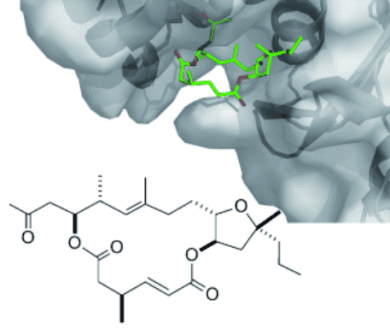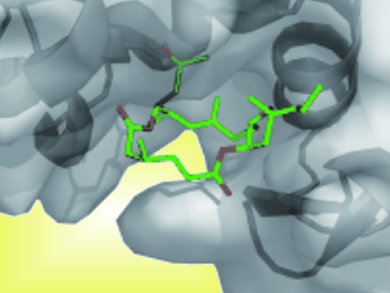Molecules that target the microtubules and actin filaments in cytoskeletons – the cellular “skeleton” contained within the cytoplasm of each cell – are potential anti-tumor or anti-HIV agents as microtubules and actin filaments play important roles in mitosis, cytokinesis, cell signaling, intracellular transport, and cell motility. Several clinical drugs have been designed to target microtubules, but as yet, no actin-targeting drug has entered clinical studies. This could offer a new line of treatment for HIV and cancer.
Jaume Vilarrasa and co-workers, Universitat de Barcelona, Spain, have studied the mechanism of action of amphidinolide X and several synthetic analogues. Amphidinolide X was shown to target the actin filament cytoskeleton, rather than the microtubule cytoskeleton. It displayed an inhibiting effect on actin-monomer additions to pre-existing filaments. It had no effect on existing polymerized actin and so did not disrupt exsisting cell structures.
Amphidinolide X is one of the smallest of a family of compounds containing a macrocyclic lactone ring which have shown anti-tumor properties. Its relative simplicity means it is easier to synthesize and modify than its larger analogues and could lead to new anti-tumor agents.

Images: (c) Wiley-VCH
- Mechanism of Action of the Cytotoxic Macrolides Amphidinolide X and J
C. Trigili, B. Pera, M. Barbazanges, J. Cossy, C. Meyer et al.,
ChemBioChem 2011.
DOI: 10.1002/cbic.201100042




